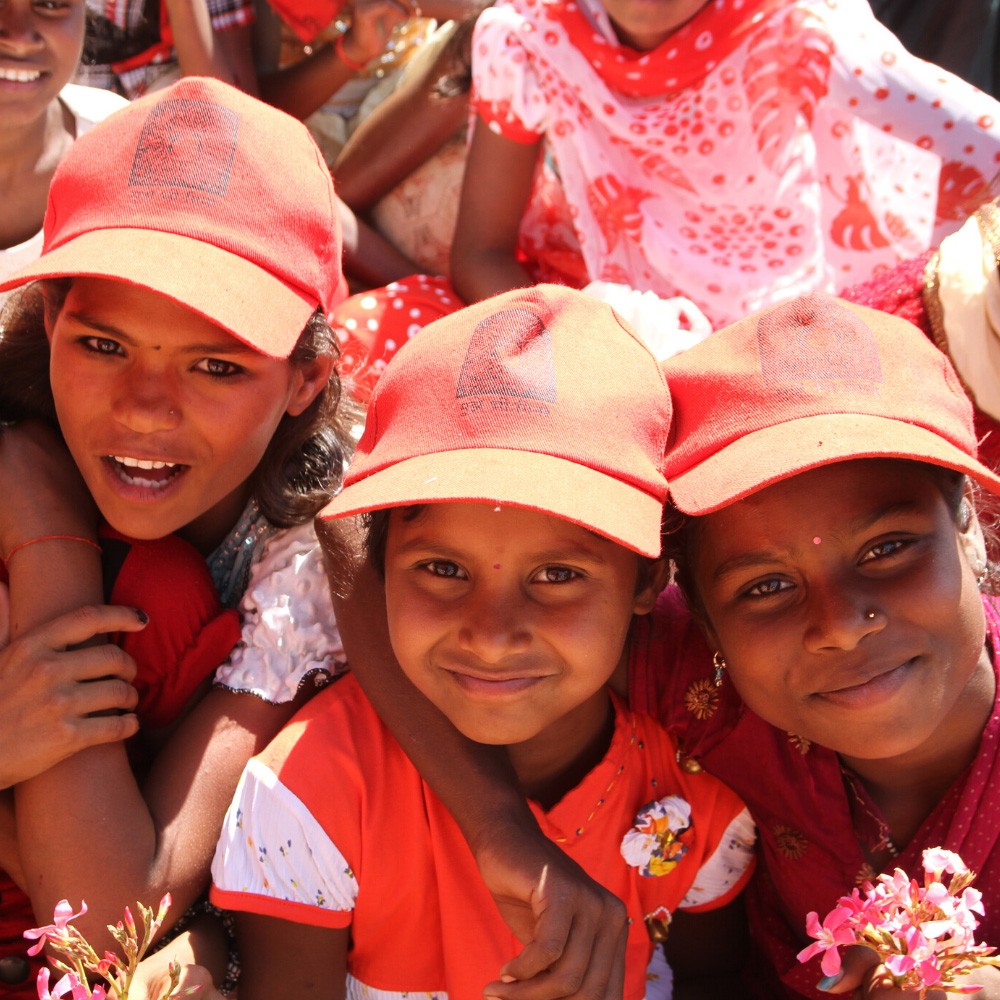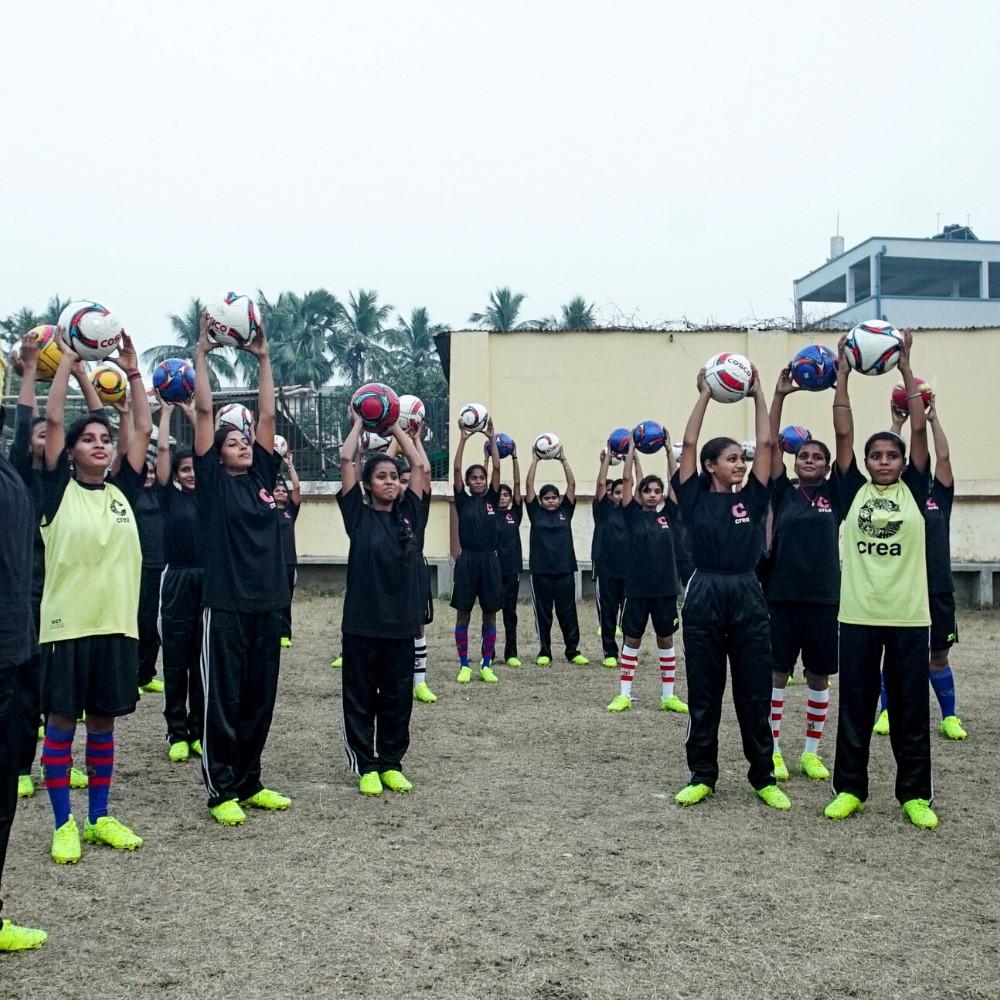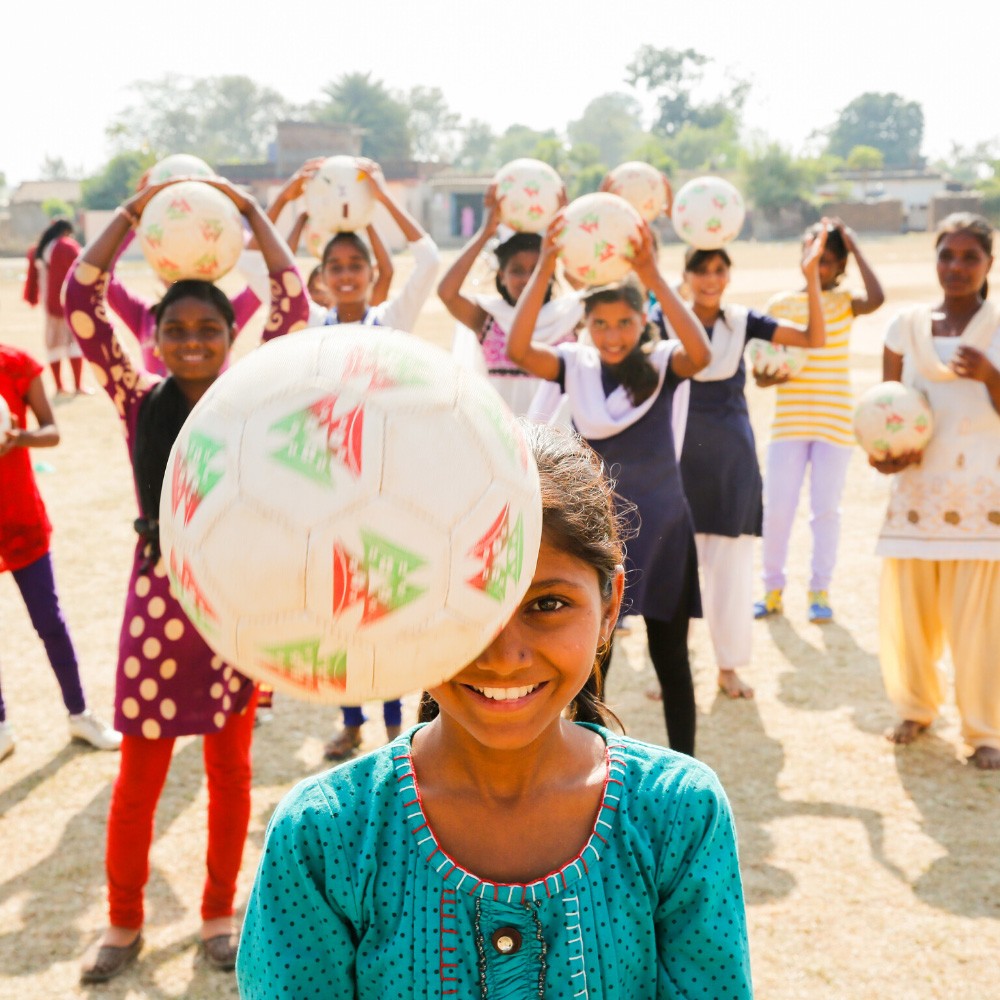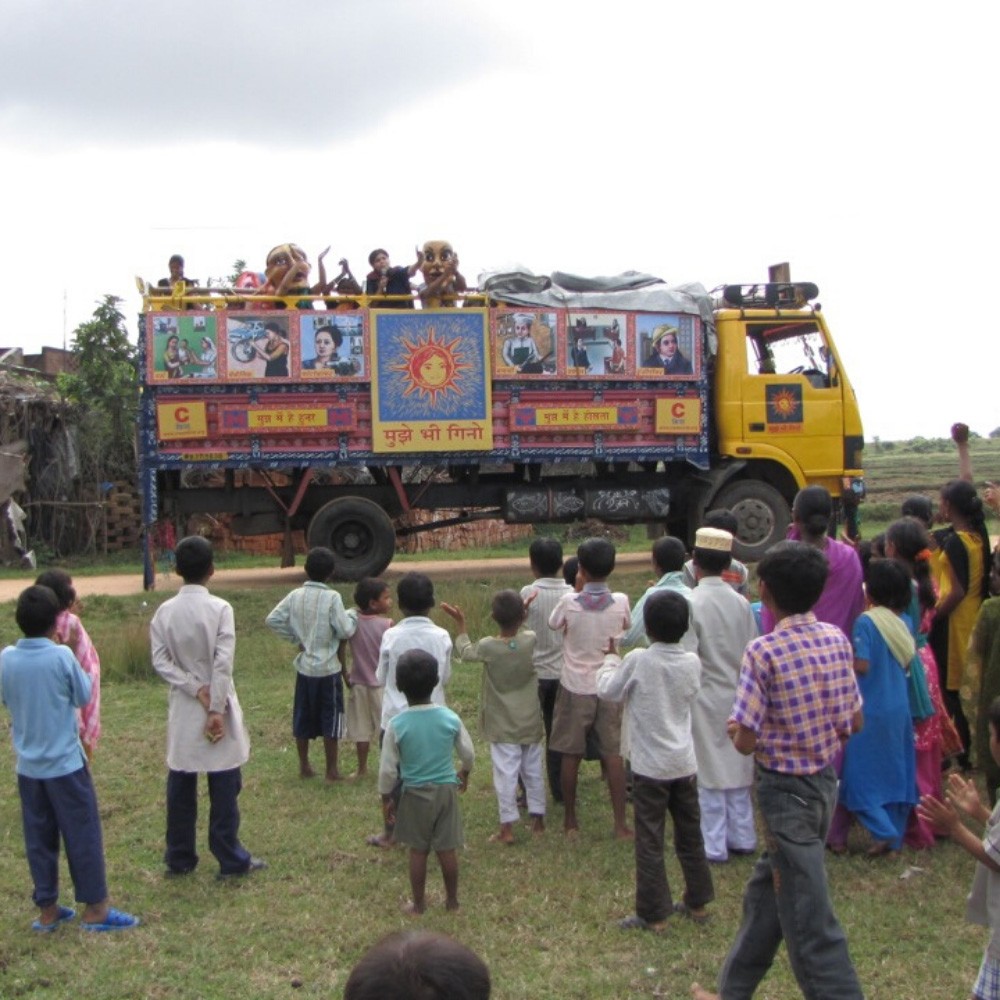It’s My Body
Advancing the Sexual and Reproductive Health and Rights (SRHR) of girls through sports
I am a fat girl. People have always teased me about my body, my weight, my clothes and my style. When I joined the IMB program, everyone said how can a fat girl play football. But, I didn’t give up. I stayed on and practiced. Today I want to tell everyone that I can play and do everything that others can and I am proud to be who I am.
An adolescent girl enrolled in IMB program | Jharkhand
Women and girls have always been told what they can or cannot do, how they should behave, what they can wear with little or no decision-making power over their bodies, choices and lives. Gender stereotyping, discriminatory practices and lack of access to public spaces are some of the common issues that women and girls experience throughout their lives. In order to ensure that women and girls are recognized as individual rights-bearers, challenge existing stereotypes, address negative discrimination and are able to exercise control over their bodies and sexuality, CREA developed a community level intervention It’s My Body (IMB) program with girls (including girls from tribal, Dalit and religious minorities), co-implemented with community-based organizations in two Hindi speaking states of Jharkhand and Uttar Pradesh in India.
Building on 15 years of work on issues of gender, sexuality, sexual and reproductive health and rights (SRHR), and women’s rights, CREA initiated direct work with adolescent and young girls in 2009. The It’s My Body program focuses on the sexual and reproductive health and rights of adolescent girls using sports.
Sports is a way to talk about SRHR for two reasons: first, it breaks gender stereotypes around who can and should play sports, and second, it can be used as an effective and fun medium to initiate a conversation with girls about sensitive yet important topics of mobility (accessing a public space in order to play sports), bodily autonomy, choice (what sport to play, where to play it, what to wear), consent, and pleasure (do I enjoy playing sports? why do I enjoy it? what do I dislike about it?). These discussions then become starting points for deeper conversations around sexuality and rights.
CREA along with partner organizations also works with the parents and families of the girls enrolled in the program and other stakeholders in their communities to create a supportive and enabling environment for the girls to exercise their rights. Leadership and sports camps; regular engagement with parents and family members; health service providers and local level elected representatives are the other key components of the program.
In the past decade IMB has been implemented in collaboration with 15 grassroots women’s rights organizations in Bihar, Jharkhand and Uttar Pradesh and has reached more than 10,000 girls directly and indirectly. Leadership camps have also helped create a pool of including girl sports coaches who are taking initiatives to reach out to other girls in their communities to play football and talk about gender norms, discrimination and their rights. This has also enhanced their mobility and overall access to communal spaces that otherwise are typically seen to be for men and boys. The program has also expanded to work with elected women representatives (EWRs) in the same communities on issues of Feminist Leadership, Political Participation and Gender Based Violence.



